I have a problem with this code, I'm running it on winMips64 and I'm getting a lot of RAW errors
I'm new with this kind of coding and I'm still trying to learn it
.data
n: .word 8
x: .double 0.5
.text
LD R1,n(R0)
L.D F0,x(R0)
DADDI R2, R0, 1 ; R2 = 1
MTC1 R2,F11 ; F11 = 1
CVT.L.D F2,F11 ; F2 = 1
loop: MUL.D F2, F2, F0 ; F2 = F2*F0
DADDI R1, R1, -1 ; decrement R1 by 1
BNEZ R1, loop ; if R1 != 0 continue
; result in F2
HALT
